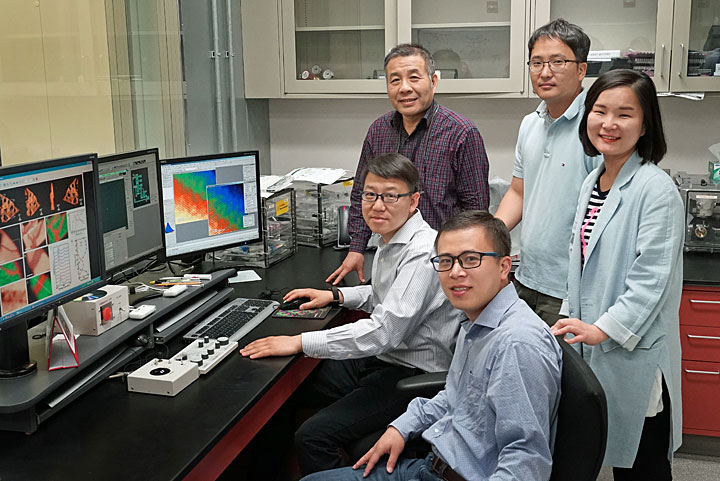intercalation (countable and uncountable, plural intercalations) (chemistry) The reversible insertion of a molecule between two others. Wiktionary Enyuan Hu, a chemist at Brookhaven National Laboratory explains the importance, and limitations, of intercalation in battery chemistry. “The materials normally used in lithium-ion batteries are based on intercalation chemistry. This type of chemical reaction is very efficient; however, it only transfers a single electron, so the cathode capacity is limited. Some compounds like FeF3 are capable of transferring multiple electrons through a more complex reaction mechanism, called a conversion reaction.” Iron trifluoride (FeF3) is composed of “cost-effective and environmentally benign elements — iron and fluorine. Researchers have been interested in using chemical compounds like FeF3 in lithium-ion batteries because they offer inherently higher capacities than traditional cathode materials,” according to Brookhaven. Scientists at the University of Maryland (which led the research), Brookhaven and the U.S. Army Research Lab developed and studied the FeF3 cathode. Xiulin Fan, a scientist at UMD and one of the lead authors of …
Tag Archive
Below you'll find a list of all posts that have been tagged as “Sooyeon Hwang”

